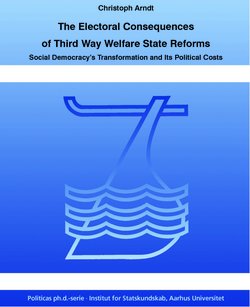Christoph Arndt
The Electoral Consequences of Third Way Welfare State Reforms. Social Democracy’s Transformation and Its Political Costs

In all advanced Western nations, policy-makers have implemented encompassing welfare state reforms in recent decades breaking with past welfare arrangements. In particular, social democracy engaged in significant policy change under the Third Way paradigm. However, the Third Way introduced welfare state reforms breaking with social democracy’s traditional reputation on welfare that had built the ties with the core constituency in the 20th century.
This book provides a comparative study of the electoral consequences of Third Way welfare state reforms. The main argument of the thesis is that Third Way reforms indeed produced an electoral setback for social democrats and that the nature of the setback is contingent on the electoral system and the party competition social democrats face when reforming the welfare state.
The analysis shows that while Swedish social democracy did not suffer an outright setback among its traditional core constituency by sticking to traditional social democratic principles, this happened to British, Danish and German social democracy after these parties engaged in welfare state reforms under Third Way agendas thereby alienating their core voters. The actual electoral consequences are determined by the electoral system and the type of party competition.
Udgivet juni 2011
Under udgivelse på Amsterdam University Press
![]() Ophavsretten tilhører Politica. Materialet må ikke bruges eller distribueres i kommercielt øjemed.
Ophavsretten tilhører Politica. Materialet må ikke bruges eller distribueres i kommercielt øjemed.